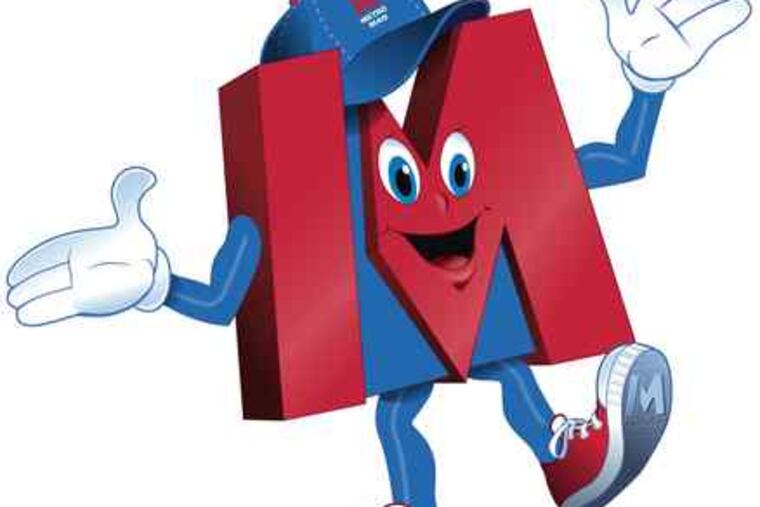PhillyDeals: A dual insider in Walgreens-Del. fight
When Walgreen Co., the drugstore giant, met with Delaware officials earlier this year to argue over Medicaid reimbursement rates to pay for poor people's subsidized medicine, the company asked a state official with a unique perspective to sit in.

When Walgreen Co., the drugstore giant, met with Delaware officials earlier this year to argue over Medicaid reimbursement rates to pay for poor people's subsidized medicine, the company asked a state official with a unique perspective to sit in.
Alan Levin, economic-development chief for new Gov. Jack Markell, owned the state's largest pharmacy chain, Happy Harry's Inc., which also had stores in Pennsylvania, New Jersey, and Maryland, before he sold it to Walgreen three years ago.
In a public fight, Levin challenged state officials in 2002 over an attempt to cut Medicaid reimbursements.
Walgreen apparently figured Levin could talk reason, if anyone could, to the cash-strapped state's top health and finance officials. But this time, Levin took the state's side.
"The situation is not comparable," he told me. "The Medicaid rate [proposed] in 2002 would have been the lowest rate in the nation, without question. But in this case, [Walgreen] is accepting a comparable rate in Pennsylvania, and a lower rate in the state of Rhode Island, which is the home of CVS," a Walgreen rival.
Walgreen spokeswoman Tiffani Washington agreed the company accepted lower Medicaid rates in Rhode Island under a long-term arrangement, "but those are not rates we would agree to" if the contract were negotiated today. She added that Delaware's Medicaid reimbursement rates used to be similar to Pennsylvania's, but are now lower, since the recent Delaware cuts.
So Walgreen said last week that Happy Harry's would stop filling Medicaid prescriptions in Delaware, citing "extreme reimbursement cuts" for "brand-name medicines."
Why is Walgreen picking a fight in Delaware but not those other states? "The reason they give for [not challenging] Rhode Island is that their market share is so low up there," Levin told me. "Here, they obviously have a larger market share."
So Walgreen is beating up Delaware because it has the market power to do so. But times have changed since 2002. Then, Happy Harry's owned 44 percent of the state's 120 pharmacies; now, its new owner controls just 38 percent of 170.
When Walgreen balked, Levin said he "reached out to my contacts at Wal-Mart and Rite-Aid. Both were enthusiastic about the opportunity and willing to help the state."
Where does that leave Walgreen? "The state is happy to let them back any time," Levin said. "But it has to be on our terms."
Yacht rescue
You know times are tough when boat owners let their emergency-tow plans lapse, said Phil Risko, who controls the Cape May-area franchise and 13 local rescue boats, docked between Sea Isle City and Salem, N.J., for Long Island-based Sea Tow.
"Last year, we had an 8 percent loss in membership," to about 5,000, Risko told me. "They wouldn't renew, and we'd call them, and a lot of times the answer was, 'I can't afford to put my boat in the water this year.' " But this spring "we are seeing heavy renewals," and expect "a slight increase" in overall members, Risko added. Though that doesn't mean boaters are any richer: Some who could formerly afford risking a few hundred to a few thousand dollars in case of an uninsured emergency, now see Sea Tow's $149-a-year coverage as less risky.
The private sea-towing business goes back 20 years, to when the Coast Guard stopped responding to what it calls "routine nonemergency situations."
"They assist us sometimes in urgent search-and-rescue," Dave Umberger, a Coast Guard veteran who is now a civilian Coast Guard dispatch supervisor in Philadelphia, said of Sea Tow. "If you were sinking, we'd come and get you," said Umberger. But Risko's Sea Tow might come, too, he added. "They don't make that distinction."
Big red M
Commerce Bank/Harrisburg and its 33 central Pennsylvania branches will rebrand as Metro Bank tomorrow.
That means new signs and a new Nasdaq ticker (METR), plus smaller changes: No more big red C logo and mascot; instead, a big red M (for MetroMan), and a new electronic interface at the bank's coin-counting machines, and longer hours some days.
Metro expects to extend the changes to the 12 branches of Philadelphia's Republic First Bancorp Inc. when those banks merge this fall, pending final government approval. Commerce Bank/Harrisburg was a franchise of the former Commerce Bancorp Inc., and became an orphan after the rest of Commerce was absorbed by Canada's giant TD Bank N.A. two years ago. Commerce founder Vernon Hill will be the largest individual shareholder in the new Metro Bank, which looks a lot like the old Commerce.